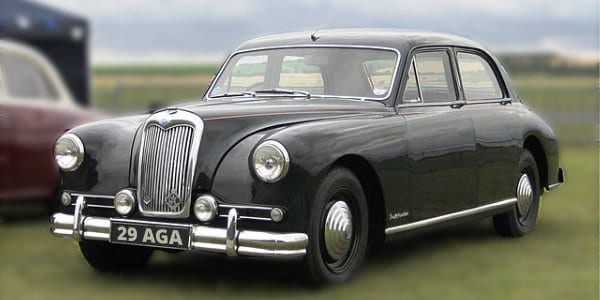August 2011
Unpacking his suitcase in a Mayfair suite after a long, delayed flight, James paused to read an article about the recent ‘civil unrest’, riots and looting in several English cities that the Prime Minister had promised in the Commons to punish severely. Ever the ardent Tory anglophile, James brooded on Britain’s sad decline. First to industrialize, yet fatally slow to adjust to the realities of changing international competition, her proud manufacturing prowess terminally compromised by a combination of ossified and complacent management technique and Marxist-inspired industrial sabotage, Britain had now drifted into the hands of dishonest bankers and hedge-fund managers, while an army of unemployed apparently felt entitled to steal in order to supplement their welfare benefits. Rolls-Royce and Mini were German brands. Riley had sold only a few thousand Pathfinders before the model was discontinued in 1957, and the marque itself had long since disappeared, along with Austin, Rover, Triumph, and MG. A Pathfinder was now a Japanese sports utility vehicle. The streets were full of identical econoboxes, reliable, thrifty– and utterly devoid of character.
Having some time on his hands, James caught a train to the Sussex coast, where he idled away an afternoon at Lord Montagu’s Beaulieu estate, open to the public like so many other stately homes, as a means of paying for its upkeep. Aristocratic owners, reflected James sourly, were reduced to fairground keepers, yet another image of decline. He recalled Evelyn Waugh’s Brideshead, which had undergone a similar desecration, but at least that had been due in part to wartime necessity. And yet he himself succumbed to the spirit of commerce, and bought a yellow rose from a pretty blonde selling them from a basket, charmed by her smile and full figure, but painfully aware of his own advancing years. Senex amans! How silly I must look, he thought ruefully, an old man with a flower and no-one to give it to.
He was in time to see the last of a sideshow on the asphalt forecourt of the great house, an acrobatic display on motorcycles that drew appreciative gasps from the younger visitors. James turned and walked to the hangar-like exhibition building nearby, glad to seek shelter from a sky grown suddenly overcast. In the dry, as the rain pelted down outside, he wandered among the exhibits of superannuated machinery, preserved like the insects in amber he had once seen on a Caribbean holiday in a Santo Domingo museum of natural science. Here, as there, decay would not eat away at the objects on view. All flesh may be grass, but here, at least, all steel would not be rust.
Suddenly possessed of an unerring intuition, a premonition with the force of revealed truth, James turned and moved unseeing through the motor museum, until he saw, in a corner, under a banner proclaiming “Answering 999 Calls: British Emergency Vehicles To The Rescue” the object of his quest, flanked by a Land Rover breakdown truck, and an antique Dennis ambulance. Easing his way through a throng of visitors, he moved to the side of what could only be Agatha. The sight of her came more as a shock of recognition than a surprise, as he had, he later reflected, first seen her in a similar place, though then she had been shrouded like an Afghan virgin. Now she was restored and resplendent, fitted out at last in all her glory as a police car, complete with roof-mounted bell and light, and without the enamel badges on her grille, her distinctive number plate still 29 AGA, unmistakably the same sleek Pathfinder he had met in a Somerset garage more than thirty years before. He had, unknowing, found the path that led to her. He stood silently in front of her for several moments as the crowd dispersed, and then, reverently, he laid his yellow rose upon her windshield.

Picture by Charles01 – Own work, CC BY-SA 3.0, https://commons.wikimedia.org/w/index.php?curid=11062625




